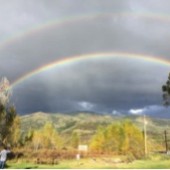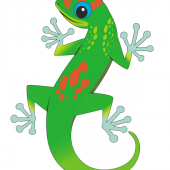Abstract: Many have written about the different ways people participate in authentic scientific research. However, some of the means used to engender public support in research may prove ultimately counterproductive. In this opinion piece we argue that science is not fun much of the time, and more importantly that fun in itself is not an end goal in engaging public audiences. To draw participation, we need to focus on motivation; which can include fun some of the time.
Continue ReadingAbstract. This study investigates whether children at an urban place-based environmental education camp can develop three dimensions of eco-character development after week-long participation: Head (knowledge), Hand/Feet (action), and Heart (care/connection). Using a community-based and inquiry-driven curriculum, campers practiced the roles of an arborist, ecologist, and environmental steward. Fifty-five Campers were assessed on all three dimensions using a 10-question pre/post-survey. An overall increase in content knowledge, relationships with nature, and motivation for pro-environmental behaviors were found. Outdoor environmental education summer camps and other out of school experiences may be the new avenue for educators and instructors to consider when trying to promote positive eco-character development in future generations.
Continue Reading
Abstract: A United Nations international collaboration between the Education for Sustainable Development (ESD) and the Principles for Responsible Management Education (PRME) resulted in the creation of Sulitest® (aka Sustainability Literacy Test) an open, online training and assessment tool freely available to higher education institutions globally. This study analyzes the effectiveness of the newly developed Sulitest® to not only measure sustainability literacy of higher education student populations, but also act as a catalyst for boosting affective learning outcomes by: (a) generating interest in sustainability-related issues, (b) improving sustainability-related understandings, and (c) enhancing students’ interests in the subject matter. In order to do so we present a two-phase, exploratory mixed-method pilot study. Preliminary results from this pilot study reveal Sulitest is a useful tool for not only assessing sustainability literacy but also spurring student interests and motivations in sustainability-related subject matters. Findings, discussion and limitations are provided.
Continue Reading
Abstract: In his landmark book Native Science (2000), indigenous educator Gregory Cajete eloquently articulates the motivations and questions that drive this study. For Cajete, effective education of our time entails “finding heart.” Finding heart is an active process within and beyond the person. It is evident in ethically and spiritually grounded work and being that embody meaningful connection to and care for others and nature (p. 288). This article relates to the process of finding heart through sustainability education. It presents a grounded-theory-based study of aspects of sustainability education that motivate or detract from activating hope and agency among undergraduate college students. Specific aspects of conceptual and social engagement, as well as the duration of these effects, are examined in some depth, with the voices of students themselves reflecting the diversity, depth, and power of their experience. The author concludes by suggesting that generating hope and agency among students is a vitally important outcome for sustainability education as part of the larger movement for sustainability. She also suggests curriculum design considerations for effectively activating hope and agency among students.
Continue Reading
This study presents outcomes from the Girls Energy Conservation Corps, a research and development project that produced a series of six patch activity guides for girls age 8-14 who are members of the Girl Scouts of Eastern Massachusetts. The program focused on integrating engaging online and real world activities that involved girls in learning about climate change and their role in it, in saving energy, understanding the importance of collective goals and action to address climate change, and using new media creatively to educate peers and the community about energy conservation. Positive changes in knowledge, behavior, and attitudes pre to post suggest that a carefully designed program can address the challenges of educating children about energy conservation and climate change at this age, even if participant exposure to the program is brief. Findings also bring to light that developmental differences may be important to deconstruct in future studies when applying adult-tested behavior change models and theories to youth.
Continue Reading